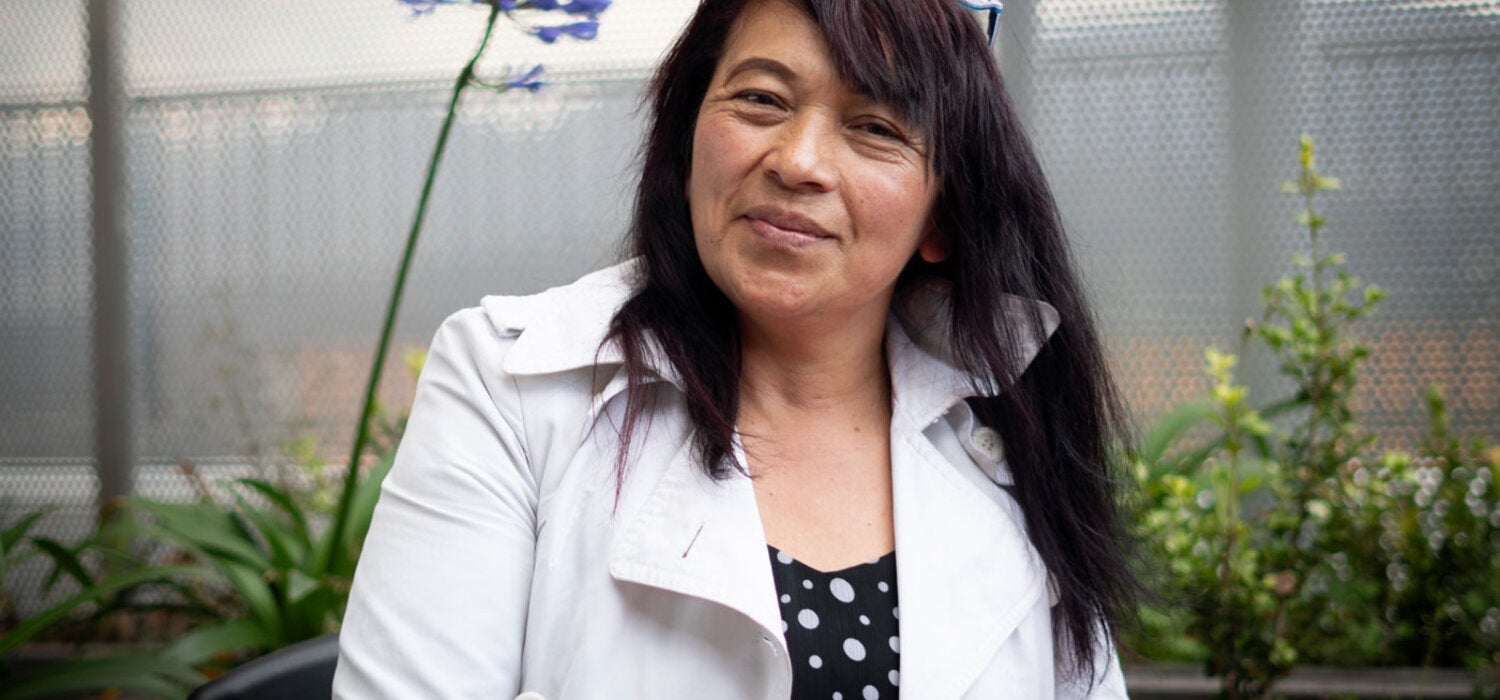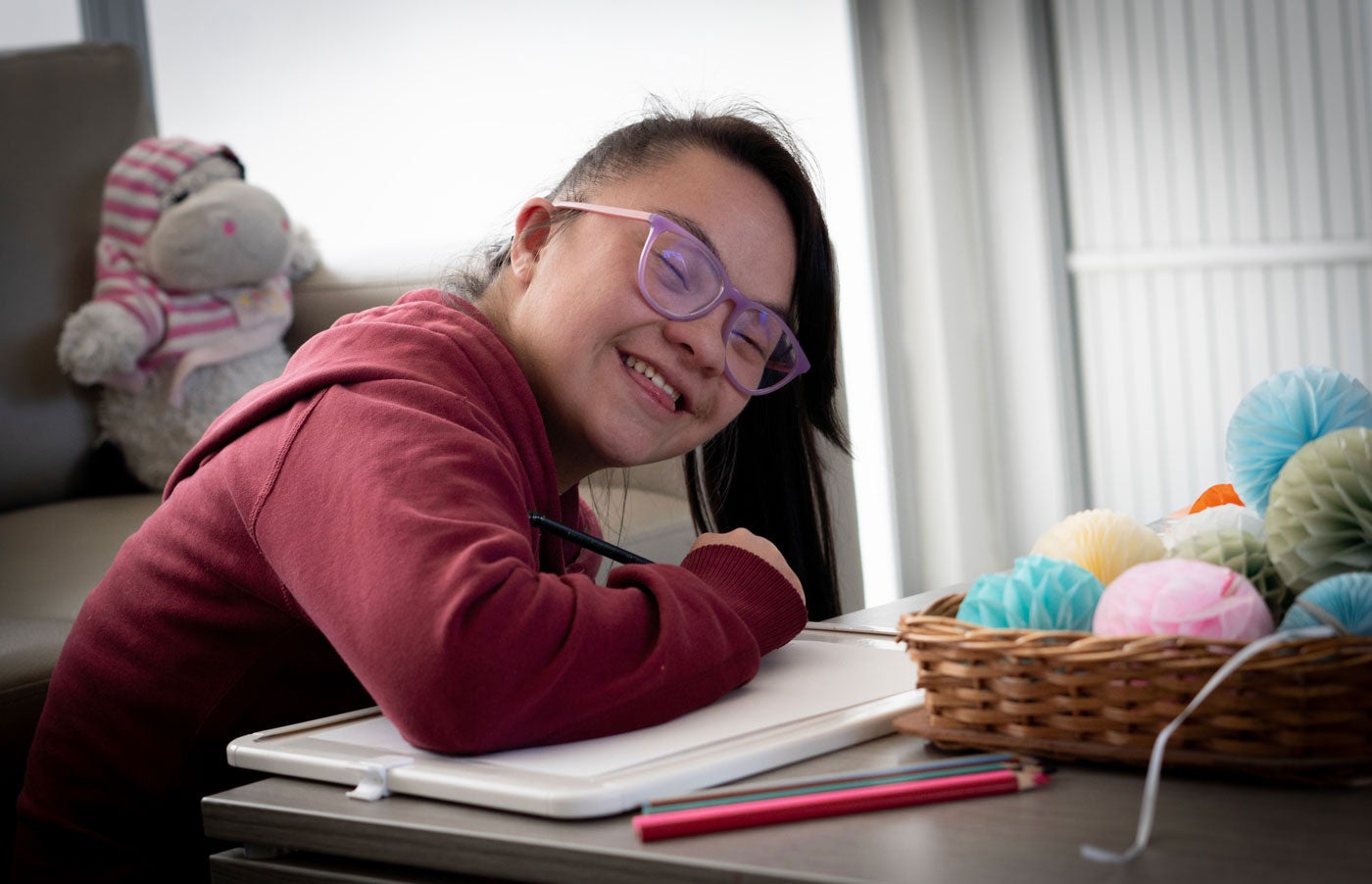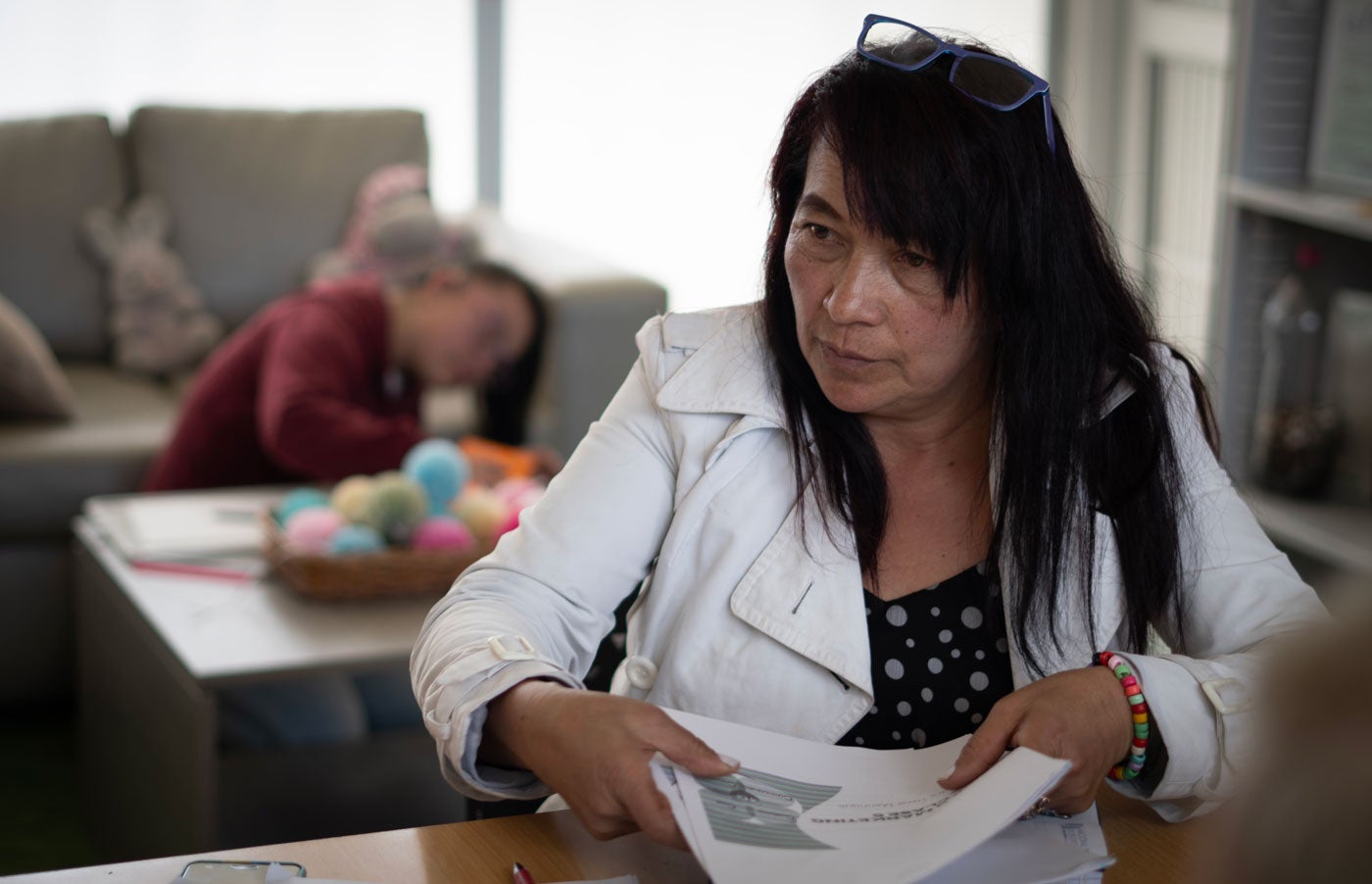Jenny Portilla, 56, is one of the beneficiaries of free services for women who spend most of their time doing care work
September 2023
Bogotá, Colombia, 6 September 2023 ― Jenny Portilla's life has changed since she started visiting one of the manzanas de cuidado or 'care blocks' that operate in Colombia's capital, Bogotá, a city of some eight million people. Portilla, 56, is the mother of Felipe, a 16-year-old with multiple disabilities, autism, and Down syndrome. "He needs constant care," she explains. She also cares for Diana, 10-year-old who suffers from the same disease. She decided to take the girl in after she lost her parents.
Jenny is one of many women who spend most of their time caring for their children or another family member, not necessarily with a disability. "Caregiving is practically like a job for us moms. It is a huge task because they depend on us 24/7. We take care of them, set an example for them, and take them out so that they have independence, autonomy, and a better quality of life in the future," she says.
Viewed as a productive activity, unpaid domestic and care work (caring for children, preparing food, doing household shopping and cleaning, etc.) could be considered the most important activity in the national economy. Most of this work is done by women, who devote an average of eight hours a day to it, compared to three hours for men, according to data from the National Administrative Department of Statistics (DANE).
In addition to being a mother and caregiver, Jenny leads a foundation she created when her son was born. The foundation works with 65 children, 40 of them with disabilities. "I started counseling a lot of moms who were suffering because of their children's illness. I had been through the same situation myself, which gave me the idea of helping other parents whose children were born with disabilities. I could see the children weren't getting out, so when they began to arrive at the foundation, it was great, because I can help a lot of people. My main goal is inclusion and we are teaching them to help the children care for themselves," says Portilla.
She now goes to the Manzana del Cuidado de Mochuelo, a care block in the town of Ciudad Bolívar, south of the capital. It is one of 20 complexes that offer free services to women caregivers.
The care blocks are located in different areas of the city, mainly where there are vulnerable populations. Women have access to a wide range of activities that include sports, programs aimed at finishing primary or high school, and entrepreneurship programs to develop skills to generate income. While they are at the care blocks, its staff take care of their children, people with disabilities, and older adults.
"Sometimes I think I'm just continually giving care, but who takes care of me? but when I get to the care block it's great because there are movies, arts, dance, exercise, bicycles, lots of activities," Portilla says.
When I get there, my body relaxes, I feel rested, I forget my household chores, I'm focused learning. I come to learn, while Dianita and Pipe read books and they color. Here they pamper us and take such good care of us. They teach us to do sports, yoga, and unload the burdens of our daily chores," she says.
In Bogotá, nine out of ten women do unpaid domestic and care work. This hinders their access to education and employment, but they are not remunerated—a reality that widens inequality gaps.
Through public policies such as the manzanas de cuidado, caregivers can take a break and are given opportunities to build or resume a profession. "The manzanas de cuidado have been a blessing. Since they started, I've been connected with them. They bring benefits to all mothers, heads of families, caregivers, anyone who comes here. It is important to come so that you can leave behind stress, worry, and those burdens that suddenly enter your life. It gives you a break, so that you can keep going and not stress so much, and not get sick," says Portilla.
Wellness Week has been held since 2011 to promote a positive view of health and recognize the importance of health promotion for the well-being of individuals and communities. It will be held this year from 9 to 15 September, with a focus on caregivers. The objective is to highlight and promote care for all people as a key to health, well-being, and equity.
All people need care. While childhood, old age, moments of illness, and situations of dependency require specific, more intensive care, all of us are social beings who inherently need care throughout our lives. The concept of care involves caring for people's physical and mental health, and their well-being.
PAHO is committed to policies that promote health and well-being, aimed at a more equitable and sustainable reorganization of care in the Region of the Americas, with a clear focus on gender equality and equity, two central themes of Wellness Week 2023.
Giving quality care to a loved one should not depend on your financial resources. Care policies should promote equity because they generate greater well-being, especially benefiting lower-income individuals and families, particularly women, who take on the heaviest burden of care tasks. Care is everyone's responsibility: “the care we need, the care we want," says Gina Tambini Gómez, PAHO/WHO representative in Colombia.




